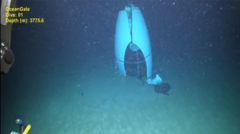Hundreds of Hamas terrorists and civilians from Gaza assaulted, looted and destroyed my home, Kibbutz Nir Oz, on Oct. 7.
They murdered 51 people in our community of a little more than 400. They kidnapped 79 others, including my 36-year-old son, Sagui.
Twenty-nine are still hostages in Gaza. We do not know if any of them are still alive. Our world stopped that day; it can resume only after the hostages return.
Nir Oz’s survivors are among more than 150,000 Israelis internally displaced by Hamas’ attack in the south and Hezbollah rockets in the north. Israel now faces multiple threats from Iranian proxies.
The only way to return our hostages alive (or perhaps at all) is to negotiate with Hamas, the homicidal captor of our loved ones. Hostage families have warned for months that our government’s military pressure strategy will fail in its stated goal of forcing Hamas to agree to a deal. No army can rescue hostages from tunnels guarded by suicidal fanatics. The Israel Defense Forces’ recovery in recent weeks of 12 bodies of hostages who were alive for months in captivity has debunked Israeli Prime Minister Benjamin Netanyahu’s core hostage policy. Further, close-quarter military action will only result in the murder of more hostages.
The vast majority of Israelis have been appalled by our government’s repeated moving of the goal posts in the negotiation process with Hamas. It claims that Israeli control over the Philadelphi Corridor is of vital national interest, despite our military and clandestine services’ dismissal of this argument.
The recent escalation of conflict with Hezbollah can surely be justified on military grounds. But targeted killing of its leaders and widespread bombing in Lebanon have only added to fears that our government’s unclear path, without a stated strategy, will lead to the death of all the hostages.
Since Oct. 7, Israel has been at war with satanic terrorist organizations, in Gaza, Lebanon and Yemen. Our greater threat, however, comes from within. As Israel approached the one-year anniversary of “Black Saturday,” Netanyahu’s speech at the UN marked a low point for our hostages and our country. Why? As a patriotic Israeli, I must ask, “What was his goal and his intended audience?”
Israel did not need this speech. The only possible justification for it would be as a dramatic platform to announce some breakthrough; major progress toward an agreement to free our hostages or the announcement, finally, of a strategic vision for post-Hamas Gaza.
Netanyahu could have begun the long road toward improving Israel’s international image by sincerely addressing the suffering of Gaza’s civilian population since Oct. 8. Instead, he repeated his worn-out cliches about the hostages and his fantastical goal of “Total Victory” over Hamas. This was followed by a torrent of accusations — against UN member countries and the UN itself. He peppered the speech with childish maps and offensive comparisons of the current conflict to the Holocaust.
Israel cannot ask for the world’s support as a “victim” (as Netanyahu claimed) while our army lays waste to cities in Gaza, whatever the cause. Claiming that our critics act solely out of antisemitic motivations only deflects from Israel’s responsibility to offer real strategic vision. The prime minister also mentioned nothing in his speech about the immense debt our country owes to the United States for its steady support amid this controversial war.
Netanyahu’s speech only amplified the ugliest part of Israeli politics: leaders unwilling to take any accountability for the situation in which Israel finds itself and unable to offer a workable vision for a better future.
Exactly at a time when Israel needs partners to leverage Hamas in favor of a ceasefire-for-hostage deal and encourage moderate Arab countries toward cooperation with Israel after the war, Netanyahu deepened existing anti-Israel antagonisms. The only applause came from a cluster of staff and supporters in the gallery. He only harmed Israel’s national interest.
Who then was the intended audience? One commentator speculated that this exercise in political theatre was directed toward Donald Trump. In truth, the only audience for the speech was his own domestic political base, always ready to embrace the populist “us against the world” narrative that Netanyahu has peddled since he emerged into Israeli politics in the mid-1980s.
When speaking on the UN’s center stage, here is what Netanyahu should have said, “We call on you to join us in ending the disastrous war in Gaza. This requires direct pressure on Hamas. It must be forced to agree to a ceasefire and hostage release. Only then can Gazans reconstruct their lives with the help of the international community. Gazans must no longer be used by Hamas as human shields in its deadly Holy War against Israel.
“We don’t yet know the contours of peace with our Palestinian neighbors. We do know that we must not go back to Hamas rule over Gaza or Israeli control over Gazans. Well-intentioned international partners can help us create a better future for our region. But first our hostages must come home.”
Jonathan Dekel-Chen is a history professor at Hebrew University and a U.S. citizen. He is the father of a hostage who has been held by Hamas terrorists in Gaza.















 English (US) ·
English (US) ·